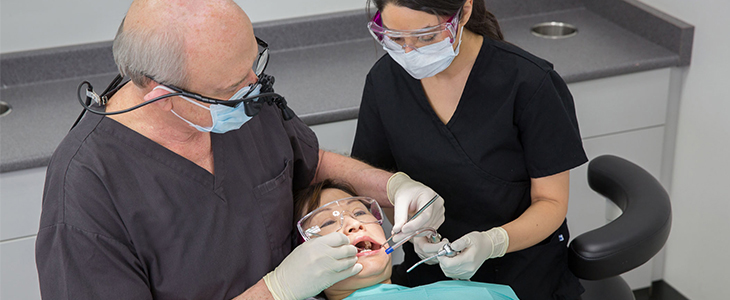MENU
-
VISITING YOUR DENTIST
- Overview
- Dental Specialists
- General Practice Dentists
- The Dental Team
- Find a Dentist
- Reduced Cost Clinics
- Understanding Your Dental Plan
- Government Dental Plans & Programs
- Mobile Dentistry Providers
Dental Specialists
Just like your family doctor, your dentist may work with dental specialists to provide you with the best care possible.
Learn more » -
KIDS & TEENS
- Overview
- Babies and Toddlers
- Teens
- Use of Sedation
- Healthy Habits
- Oral Health Month
- Fun Zone
- Childhood Dental Disease
First Dental Visit
Prevent problems early. Your child's first dental visit should occur by age one or within six months of when you see the first tooth.
Learn more » -
ADULTS & SENIORS

Pregnancy and Oral Health
Dental care during pregnancy is not only safe, regular dental visits support your health and your baby's.
Learn more » -
PREVENTION
- Overview
- The Dental Exam
- Daily Dental Care
- Slideshows
- Nutrition
- Mouthguards
- Water Fluoridation
- Stress and Oral Health
- Smoking & Vaping
- Binge Drinking
- Opioids
- Cannabis

Simple Steps
Most dental disease is preventable—starting with these five steps to take at home.
Learn more » -
CONDITIONS
- Overview
- Tooth Decay
- Tooth Loss
- Gum Disease
- Teeth Grinding (Bruxism)
- Dry Mouth
- Oral Cancer
- Bad Breath
- Tooth Sensitivity

Suffering from headaches?
Clenching or grinding your teeth (often at night) may be the reason and can also cause damage to your teeth and jaw.
Learn more » -
TREATMENT
- Overview
- Restorative Dentistry
- Dental Emergencies
- Antibiotics
- Sedation & General Anesthesia
- Orthodontics
- Cosmetic
- Dental Care Outside of Canada

Replace Missing Teeth
Your dentist may recommend a number of treatment options to replace missing teeth, such as a denture.
Learn more » - FAQ
-
-
- Sign In





